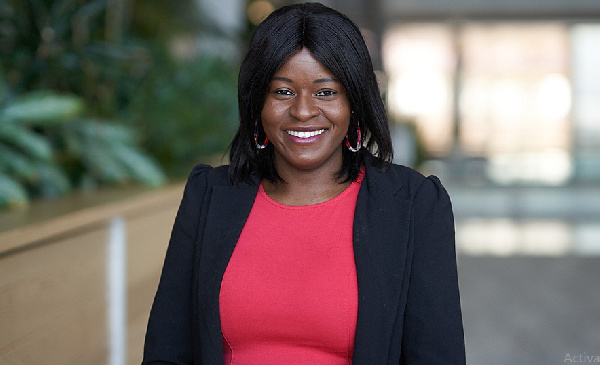Sierra Leonean immigrant Amie Fornah Sankoh is the first deaf Black woman to earn a STEM doctorate in the US

However, Sankoh, who lost her hearing when she was about 3 years old, did not let her disability get in the way of her studies. On May 20, she graduated from the University of Tennessee (UT) Knoxville’s Department of Biochemistry and Cellular and Molecular Biology with a Ph.D. in biochemistry.
This academic feat makes her the first deaf Black woman to earn a doctorate in any scientific, technological, engineering, and math discipline in the US, and likely the world. Sankoh shared that her father sent her to the United States to receive medical treatment for her deafness, but doctors could not find a cure for her disability.
“My father sent me to live with his best friend in America, who adopted me,” she said. “Doctors in the US could not cure my deafness, but I was able to join the deaf community where I learned American Sign Language [ASL] over the next few years.”
During her time as a middle school student in the United States, Sankoh’s academic issues continued to persist because of the language barrier and difficulties with being on par with her courses. The latter was due to not understanding comments from her teachers or classmates. Despite those challenges, Sankoh developed a keen interest in Mathematics.
“Mathematics is just very visual, and I was able to enjoy that,” she told Chemistry World. “Anytime a person talked, I didn’t understand anything, but when they would write out the formulas I could see it and I could see each step of how to solve that problem.”
Sankoh eventually became more academically confident in high school as she learned ASL and was assigned an interpreter. “In high school, I really fell in love with the more complex mathematics, which is why I got into chemistry,” she recalled. “I was able to learn about and see chemical reactions – how the reactions occur – and then make predictions,” she added. “It was very exciting – with the reaction, you’d have to write it down and draw it out.”
She later decided to further her education at the Rochester Institute of Technology’s National Technical Institute for the Deaf where she earned an associate degree in laboratory sciences. She also subsequently received a bachelor’s in biochemistry from the same institution.
Sankoh said she chose to pursue a Ph.D. while she was working in a laboratory after graduating from college. “I was participating in research and enjoying it, and learning and experiencing the beauty of it, and then started to discover my own potential,” she said. “And that led me to go ahead and enter the Ph.D. program at UT Knoxville.”
Her Ph.D. research looked into the effects of hormones on plant-pathogen interactions, per Chemistry World. “I can’t tell you how many times I had self-doubt and thought I’m not able, I’m not going to pass,” she said. “The journey was very challenging, but with the right mentor, I was able to overcome – I was able to focus on the science rather than just advocating for my inclusion and accessibility.”
She has also currently authored four scientific publications. “I feel very, very proud for persisting,” Sankoh stated; despite saying she wished she wasn’t the only deaf student in her class and labs during her Ph.D. program.
“But I’m very happy that I am able to inspire the next generation of deaf scientists, so they can see their potential.”
Source: face2faceafrica.com





